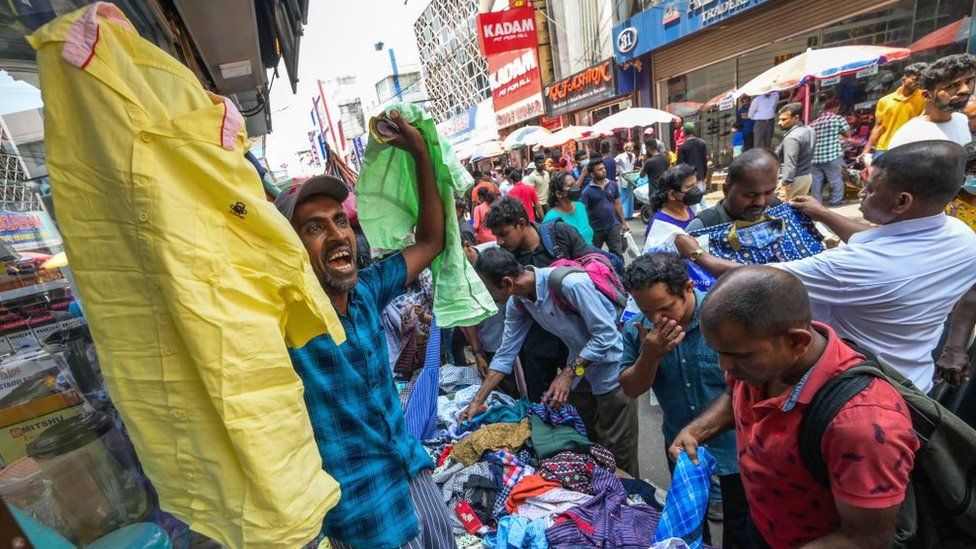In order to restructure $42 billion (£33 point 2 billion) in domestic debt, Sri Lanka began a five-day bank holiday on Thursday.
It also recently received $700 million in support from the World Bank, a global lender.
Since gaining independence from the British in 1948, the nation has been suffering from its worst economic crisis.
Financial market volatility is feared to be a result of the government's restructuring plan.
According to local media reports citing analysts, the holiday was declared to serve as a suitable buffer for any potential market reactions to important financial announcements.
Extending the time period over which a loan is repaid is one aspect of debt restructuring.
The public was reassured earlier this week by Sri Lankan President Ranil Wickremesinghe that the restructuring "would not result in a collapse of the banking system.".
The country's central bank had submitted a restructuring plan, according to Mr. Wickremesinghe's office, which his cabinet had approved on Wednesday. Over the weekend, the proposal will be put before the legislature for approval. .
The head of Sri Lanka's central bank, Nandalal Weerasinghe, stated that "(the) government expects the entire process to conclude while the markets are closed during these five days.".
Local depositors are guaranteed the security of their funds, and their interests won't be harmed, Mr. Weerasinghe added.
As the nation struggles to emerge from its worst economic crisis, a move to restructure domestic debt has been made.
For the first time in its post-independence history, Sri Lanka went into default on its debt to foreign lenders last year.
But in recent months, the nation has received a number of significant lifelines.
After receiving a $3 billion bailout package from the International Monetary Fund (IMF), funding came from the World Bank.
In a statement on Thursday, the World Bank promised to offer assistance in "phases.".
The group added that it had set aside $500 million for financial assistance and that the remaining $200 million would be used to "provide better-targeted income and livelihood opportunities to the poor and vulnerable.".
The IMF bailout in March, which had been planned for almost a year, was seen as a crucial lifeline for Sri Lanka.
The bailout was subject to requirements, such as the need for the nation to make "swift progress" on debt restructuring.
The IMF stated in March that Sri Lanka had obtained financing guarantees from all of its significant creditors, including China and India, which opened the door for the bailout.
With the remaining $330 million to be disbursed over the next four years, the IMF has already released some money to Sri Lanka.
The pandemic, rising energy costs, populist tax cuts, and more than 50% inflation have all taken a significant toll on Sri Lanka's economy.
The cost of living reached record highs as a result of a shortage of fuel, food, and other necessities, which also contributed to widespread protests that led to the overthrow of the current government in 2022.
The severity of the nation's economic crisis was described by Sri Lanka's central bank earlier this year.
The severe economic issues that engulfed the South Asian nation were caused by "a number of inherent weaknesses" and "policy lapses," according to its most recent annual report.
The Sri Lankan economy is expected to contract by 2% this year but grow by 3% in 2024, according to the central bank's forecast.
Its forecast is more optimistic than the IMF's, which predicted economic growth of 1.5 percent in Sri Lanka for the following year.







